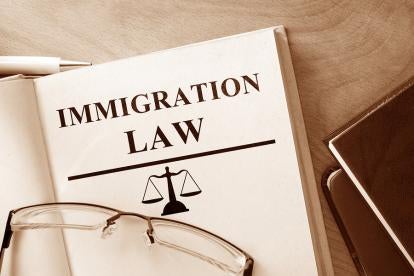Last week we saw another round in the battle between the Executive and Judiciary branches over the President’s travel ban impacting nationals Syria, Iran, Libya, Somalia, Sudan, and Yemen. Federal District Courts in Hawaii (State of Hawaii v. Trump) and Maryland (International Refugee Assistance Project (“IRAP”) v. Trump) stayed the implementation of the revised Travel/Refugee Ban Executive Order, entitled “Protecting the Nation from Foreign Terrorist Entry into the United States” (EO2). The U.S. District Court for the District of Hawaii issued a temporary restraining order (TRO) enjoining the government, nationwide, from enforcing or implementing Section 2 (90-day travel ban impacting nationals of the 6 countries) and Section 6 (the 120-day suspension of the U.S. refugee program). Concurrently, the U.S. District Court for the District of Maryland issued an injunction barring enforcement, nationwide, of Section 2(c) (90-day travel ban impacting nationals of the 6 countries) of the EO2. Both decisions indicated that the revised EO2 did not include “constitutionally significant” changes from the first EO and the Plaintiffs are likely to prevail on their claims that portions of the EO2 violated the Establishment Clause of the First Amendment of the United States Constitution.
The Department of State (DOS) announced it will suspend implementation of the provisions of the EO2 as required by the relevant court orders and that U.S. Embassies and Consulates will continue to process visas for nationals of Syria, Iran, Libya, Somalia, Sudan, and Yemen. However, It should be noted, that the suspension of the Visa Interview Waiver Programs (also known as the “drop-box”) (Section 9 of EO2) was not stayed by these court orders. Therefore, many nonimmigrant visa applicants, of all nationalities, will be required to undergo an in-person interview at the US Embassies and Consulates unless specifically exempted by statute or exempted by the EO2 (those traveling with diplomatic visas or traveling for the purpose to conduct meetings or business with the US government).
In a related development, during a busy week of judicial activity, the Ninth Circuit United States Court of Appeals issued an Order Denying En Banc Reconsideration, with Concurrences and Dissents of its prior decision upholding the TRO staying the first EO in State of Washington & State of Minnesota v. Trump. The Order acknowledged its original decision became moot after the government moved to dismiss its appeal after publishing the revised EO2. Nevertheless, this Order included a 26 page dissent, authored by Circuit Judge Bybee and joined by four other Circuit Judges, arguing that the full Court of Appeals should have reconsidered the three-judge panel’s decision. Judge Bybee wrote that the courts have a “duty to preserve the liberty of the people by keeping the enormous powers of the national government separated . . . We will yet regret not having taking this case en banc to keep those lines of authority straight.”
No doubt, the Travel Ban saga will continue. In State of Hawaii v. Trump the Administration submitted a Motion for Clarification of TRO to limit the scope of the Order but the Judge denied this request on Sunday, March 19th. While in IRAP v. Trump, the Administration filed a Notice of Appeal and the matter will now go before the Fourth Circuit Court of Appeals, based in Richmond, Virginia.




 i
i


